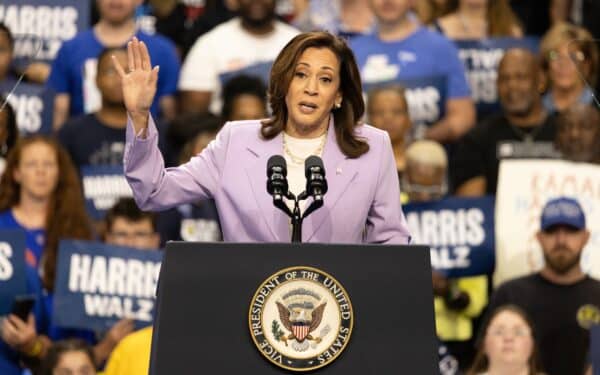On Sunday, over a million Moldovans will head to the polls to cast their vote in a pivotal election, that will act as a key test of how much influence Russia still has in the eastern European nation.
Moldova’s current President, Maia Sandu, will be fighting to secure another term and to stop the country falling back under Moscow’s shadow.
The 52 year-old, from the Party of Action and Solidarity, has been President since December 2020 and spent her first mandate carefully crafting an EU-sympathetic image. She has denounced Russia’s invasion of Ukraine and has spearheaded a crucial referendum that will take place on the same day as the presidential election, on whether Moldova – which currently has EU candidate status – should become a fully-fledged member of the bloc.
Polls indicate that Sandu is heading for victory. She is currently leading the race on 36.1 per cent while her two main rivals – Alexandr Stoianoglo, who is technically an independent candidate but backed by the pro-Russian Socialist Party, and Renato Usatîi, a former mayor of Bălți and Russian dual citizen – are on on 10.1% and 7.5% respectively.
While Sandu is ahead, election interference could dent the chances of the vote resulting in a further tilt towards Europe. The Moldovan police alleges that it has uncovered a voter fraud operation, financed by pro-Russian Moldovan oligarch and politician Ilan Shor. The scheme is suspected to involve $15 million in transfers made to ordinary Moldovans in return for their voting against EU integration in the referendum. According to the country’s Information and Security Service, SIS, a criminal group led by Shor has received substantial funds from Moscow and is attempting to derail Moldova’s European course. Shor has insisted the payments were legal.
That said, there is a chance that efforts to interfere with the election could backfire. Will Kingston-Cox, a Moldova expert for the International Team for the Study of Security (ITSS), told Reaction that there is a growing disillusionment with Russian interference in elections amongst large swatches of the Moldovan population. This, alongside Sandu’s reformist agenda, has bolstered support for the incumbent, even among those who see some benefit in ties with Russia.
“This is a paradox that highlights the very complex identity of Moldova, torn between its historical and cultural ties with Russia and its political and economic future aspirations within Europe,” adds Kingston-Cox.
Notably, pro-Russian rhetoric has in been toned down following Putin’s full-scale invasion of Ukraine, and now, among major political figures, only exiled Ilan Shor is openly pro-Kremlin.
Out of all the 11 candidates competing on Sunday in the country’s largest leadership contest yet, most of them champion EU integration, even if they have a history of expressing Russian sympathies or rubbing shoulders with Kremlin darlings.
Alexandr Stoianoglo, who is backed by Kremlin favourite Igor Dodon’s party, is likely to face Sandu in a run-off. The party itself and Dodon have strong Russophilic and EU-sceptic sentiments, to the extent that they are thought to be directly run by Russia, according to Carnegie Politika. However, Carnegie Politika has warned this should not necessarily be taken to mean that Stoianoglo himself is Russia’s rat in the race. While he calls for good relations with Moscow, he has also openly condemned the war in Ukraine.
Similarly, the leader of Our Party, Renato Usatîi, who is third in the polls, holds dual citizenship with Russia, worked as a businessman in Russia for nearly a decade and heads a party that has often been labelled pro-Russian. But, over the past two years, his party has started to replace calls for closer ties to Russia with support for European integration. And while it does not explicitly label Putin an aggressor, it does voice support for Ukraine’s territorial integrity.
It’s worth adding that even US-educated, EU favourite Sandu isn’t entirely immune to Russian influence. She came under fire, for instance, for giving the Commission for Exceptional Situations the prerogative to censor media within the country, resulting in the suppression of some anti-Kremlin narratives following Putin’s full-scale invasion of Ukraine.
But overall, she is regarded as a safe pair of hands to set Moldova on a path to European political and economic accession.
A likely victory for Sandu – paired with a “yes” vote in the referendum – will however only deepen the divide between pro-European and pro-Russian segments of the population. And it will stoke tensions in Transnistria and Gagauzia, both autonomous areas with strong pro-Russian sentiment. Putin will seek to capitalise off of these tensions.
As Kingston-Cox points out, Sunday’s vote is pivotal “not only for Moldova’s future but for regional stability.”




